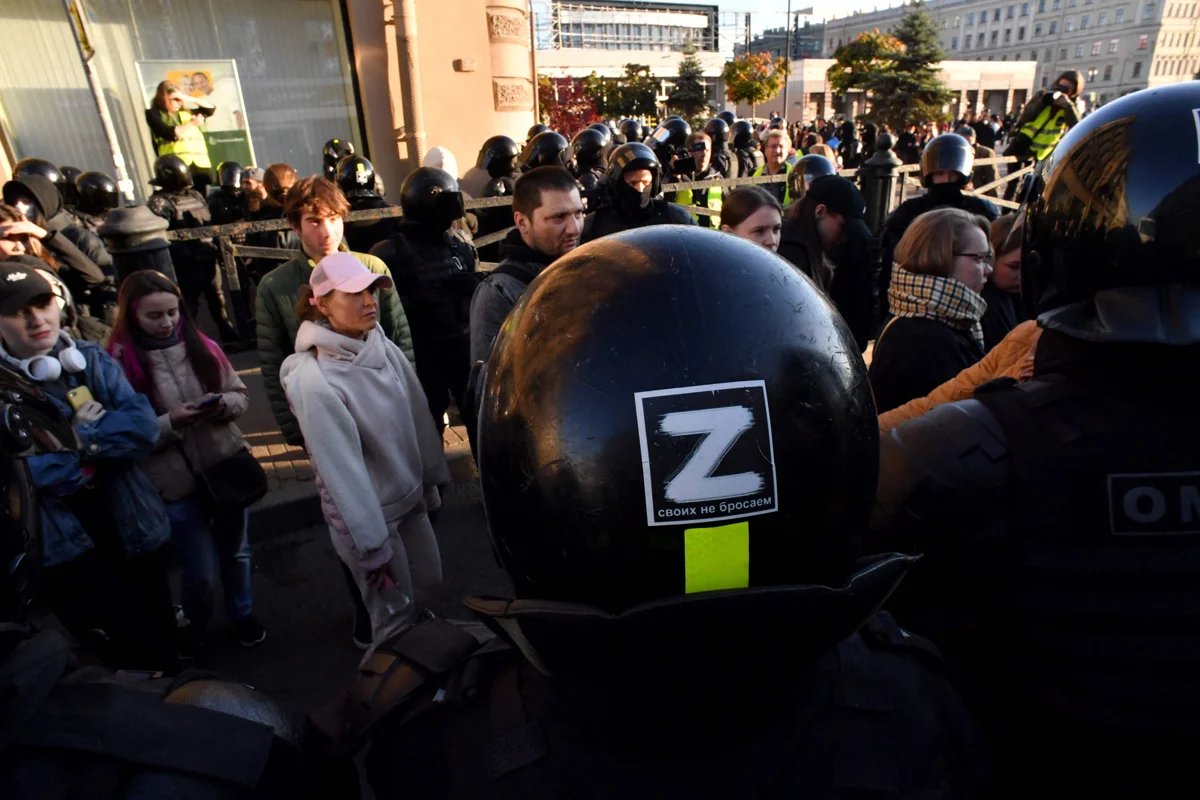Russia’s notorious “foreign agent” law, which for years has been used by the Kremlin to intimidate would-be dissenters into silence, has left many of those it has targeted as virtual outcasts from society; unable to get a job, afraid of sullying the reputations of their friends, and with exile often appearing to be the sole solution.
First introduced in 2012, just months after Vladimir Putin began his third presidential term following a wave of mass anti-government protests, the foreign agents law initially targeted organisations that received funding from outside the country, but has been expanded several times over the years and can now be applied to media outlets and private citizens, even in cases when there’s no evidence of overseas funding.
“Foreign agents” cannot stand as candidates in federal, regional or local elections, cannot teach in schools or state-funded universities, or receive royalty payments or income from renting and selling property.
Indeed, a 2022 amendment to the law expanded the criteria of what constituted a “foreign agent” to anybody who voiced criticism of the Kremlin’s policies. Since then there have been scores of new additions to the foreign agent register, which is updated by the Justice Ministry each week and now has over 900 names on it.
While the list unsurprisingly includes a number of high-profile Kremlin critics such as former Novaya Gazeta editor-in-chief Dmitry Muratov and Oleg Orlov, the chairman of Russian human rights group Memorial, hundreds of lesser-known journalists and activists have found their names added to the list in recent years as the Kremlin’s determination to silence any dissenting voice, however small, has grown stronger.
Although many of those labelled “foreign agents” have left the country to live in exile, others continue to live in Russia albeit with their rights severely curtailed — for example, “foreign agents” cannot stand as candidates in federal, regional or local elections, cannot teach in schools or state-funded universities, or receive royalty payments or income from renting and selling property.

Photo: AP Photo / Scanpix / LETA
The Russian authorities claim that the “foreign agent” designation is in no way discriminatory, and that as long as the individual in question sends reports of their income to the Justice Ministry, they can continue to live and work in Russia without risk of persecution. However, in practice, it is virtually impossible to get a job in Russia if you carry the “foreign agent” label.
Daria Kheikinen, who ran the campaign of presidential hopeful Boris Nadezhdin before he was barred from running in last year’s election, spoke earlier this month of how she’d recently been offered a job with a Russian company, only for it to be withdrawn once her prospective employer learnt that she had been named a “foreign agent”.
“This stigma will stay with each of us as long as Putin is in power.”
Kheikinen’s story is far from unique. Anna*, an activist and “foreign agent”, told Novaya Gazeta Europe that she was fired soon after starting a new teaching job at a university, and that she had even been told by a security guard that there was “no place for foreign agents and traitors” there.
Since then, despite being qualified to work in higher education, Anna has been forced to take on temporary gig economy jobs just to stay afloat financially. “From 4am to 8am, I work in a supermarket, loading and unloading groceries … Then, if I can, I sleep for a few hours, and then work as a taxi driver from 2pm to 9pm. I’ve recently got a job as a courier, too,” she says.
“I have nothing to be ashamed of, it’s just the way my life has turned out,” Anna continues.
The “foreign agent” legislation, says Anna, is a direct descendant of Stalin’s Great Terror against those the Soviet government deemed “enemies of the people”, which would typically lead to a long prison sentence if not a firing squad. “People have long become expendable for the authorities,” she continues. “We no longer have a voice.”
“This stigma will stay with each of us as long as Putin is in power,” says Vladimir*, another Russian activist and “foreign agent” whose job applications have been rejected several times.

Photo: Alexander Zemlyanichenko / AP Photo / Scanpix / LETA
“There is discrimination in one way or another — they just ghost you, give you monosyllabic answers or reject your application without going into details,” he says. “Most likely, there is some kind of list of ‘unreliable’ candidates that appears at a certain stage of the application process.”
Though he has now found employment at one of the few Russian human rights NGOs continuing to operate in the country, Vladimir stresses that his “foreign agent” label hasn’t only affected him, but those around him as well, including his wife, who was summarily dismissed from her job shortly after Vladimir’s home was searched by police.
“I refused, and a few weeks later I received a phone call saying that it would be my last day at work.”
Indeed, he recounts that one of the police officers who carried out the raid explicitly advised him to pack his things and leave the country, and adds that he’s convinced “this economic pressure is just another way of forcing us out of the country”.
Sofia* says she hasn’t had a formal job since she was declared a “foreign agent” and had all her existing contracts terminated two years ago. For a while, she got around the restrictions by having someone else sign contracts for her while she did all the work.
But this workaround could have serious repercussions and is fraught with criminal liability for any company or individuals involved in the scheme, says Sergey*, a lawyer and a former local councillor who was offered a similar loophole at his job, having been forced to resign after his employer received a call about his “foreign agent” status from the local authorities.
“For me, this is unacceptable. This is forgery and fictitious employment,” Sergey said. “I refused, and a few weeks later I received a phone call saying that it would be my last day at work.”
Sergey is now trying to challenge his dismissal in court, while setting up his own private legal practice. But most potential clients, even those who worked with him in the past, are no longer prepared to hire him now, Sergey says, as any motions or claims he files would have to bear the “foreign agent” label.
“The only thing left for me to do is to informally advise my colleagues. And there’s still the possibility of working with organisations that have already been recognised as ‘foreign agents’ themselves,” Sergey says.
Sofia initially considered finding work as a teacher, but “foreign agents” were banned from teaching in any state institutions in a 2022 amendment to the law. She then decided to try her hand running her own lifestyle blog on Telegram, which she says was in no way political.
“I don’t see any opportunities left for me and it’s very demotivating.”
Under Russian law, any social media post authored by a “foreign agent” must be preceded by a cumbersome disclaimer warning people of the status in block capital letters. However, the lawyers Sofia consulted before starting her blog told her that if the content she posted was entirely personal and nonpolitical, she wasn’t required to use it. Nevertheless, soon after starting her blog, Sofia was fined for her failure to declare herself a “foreign agent” in each of her posts.
“Now I can’t even enjoy my hobbies,” she says. “All I do is walk the streets, go into shops and look at notice boards to see if they’re looking for cashiers or warehouse workers. I can’t even ask my friends to help me find a job, because I’m afraid I’ll get them into trouble.”
“The situation is horrible, to be honest,” Sofia says after mentioning that her husband has also lost job opportunities due to her status. “I don’t see any opportunities left for me and it’s very demotivating.”
*Names have been changed.

